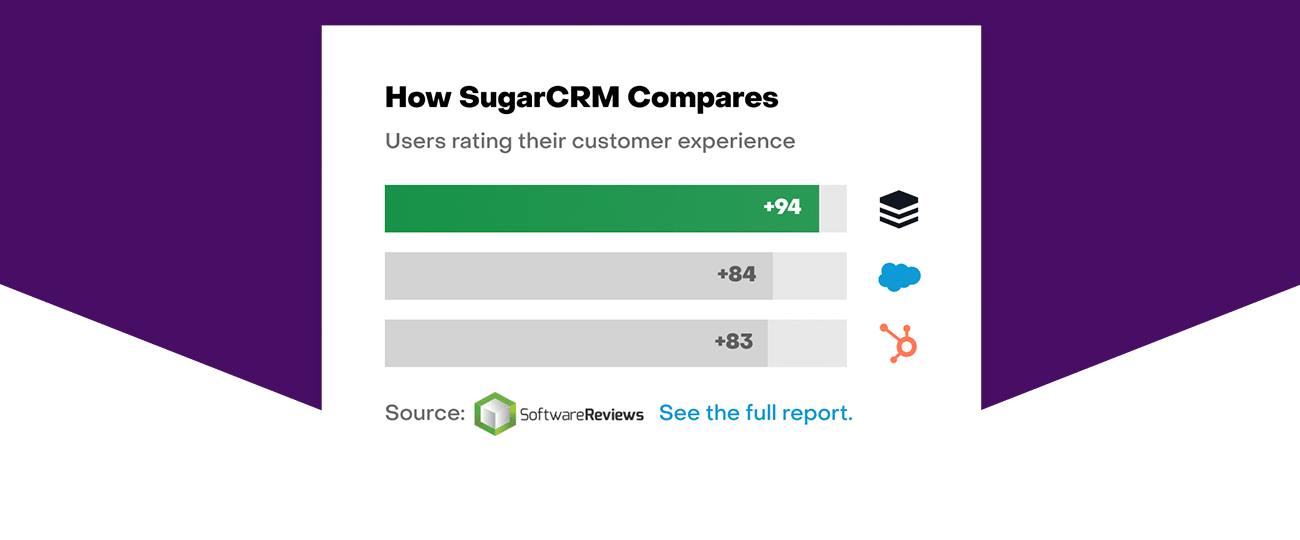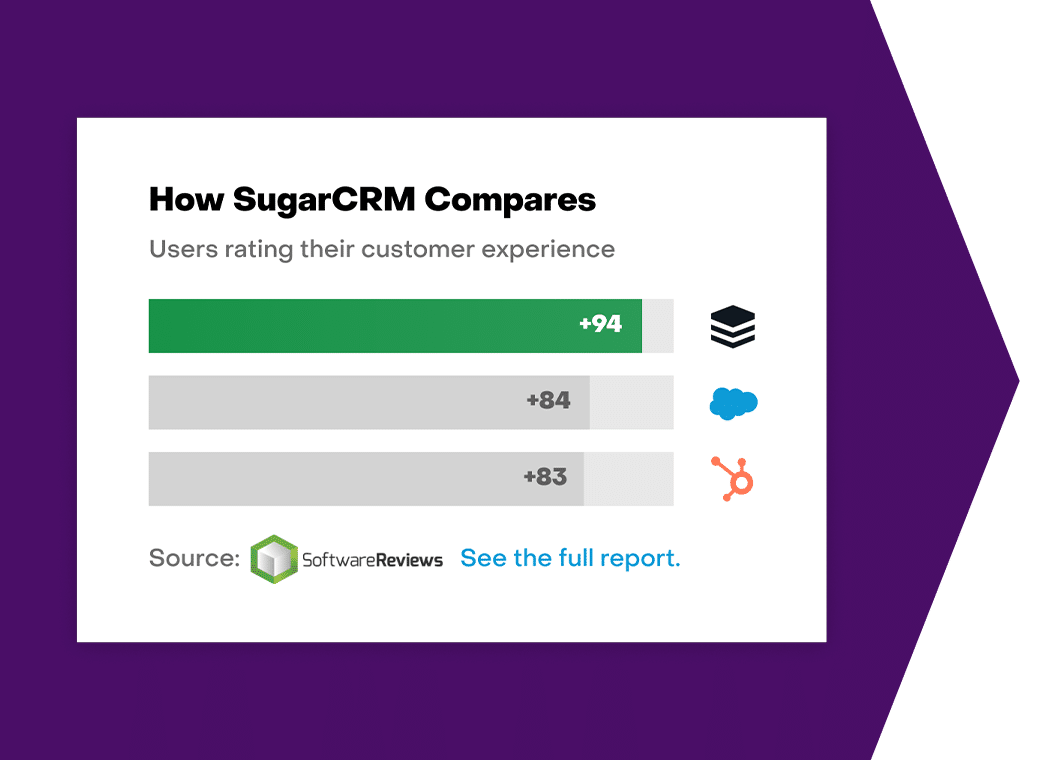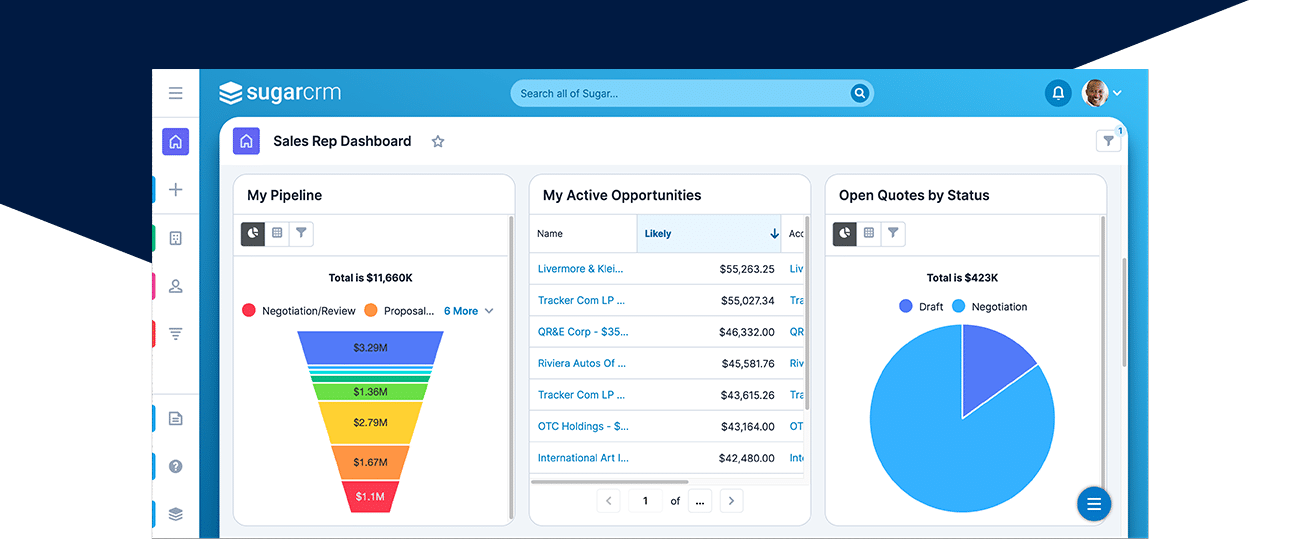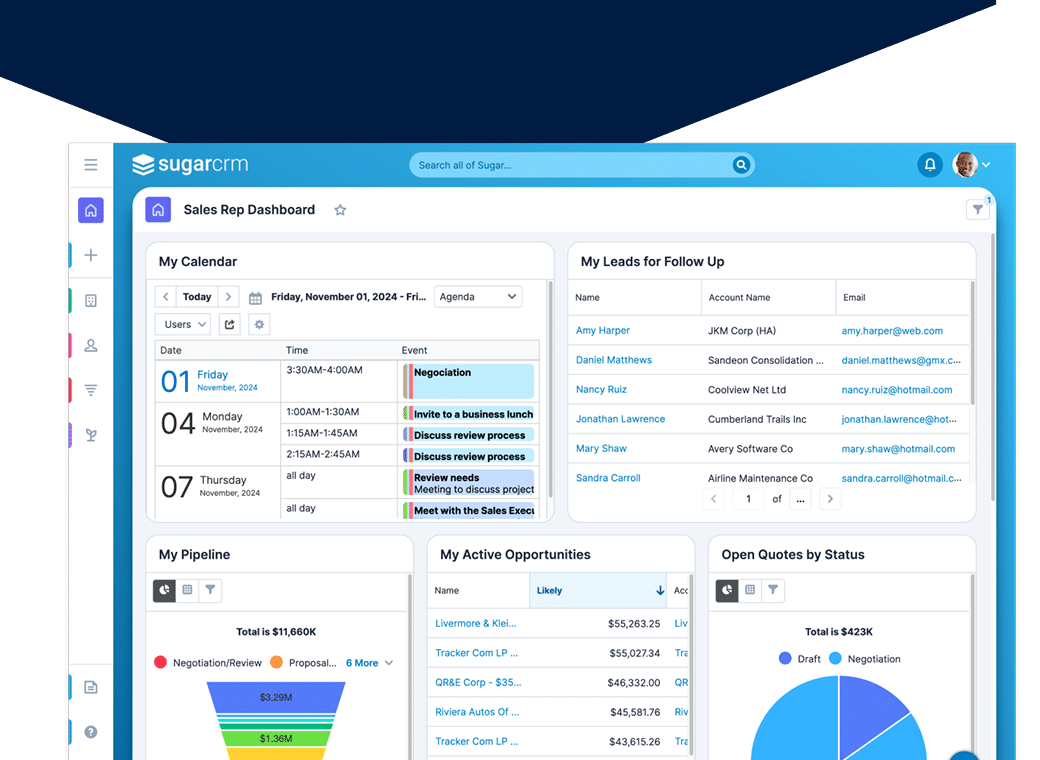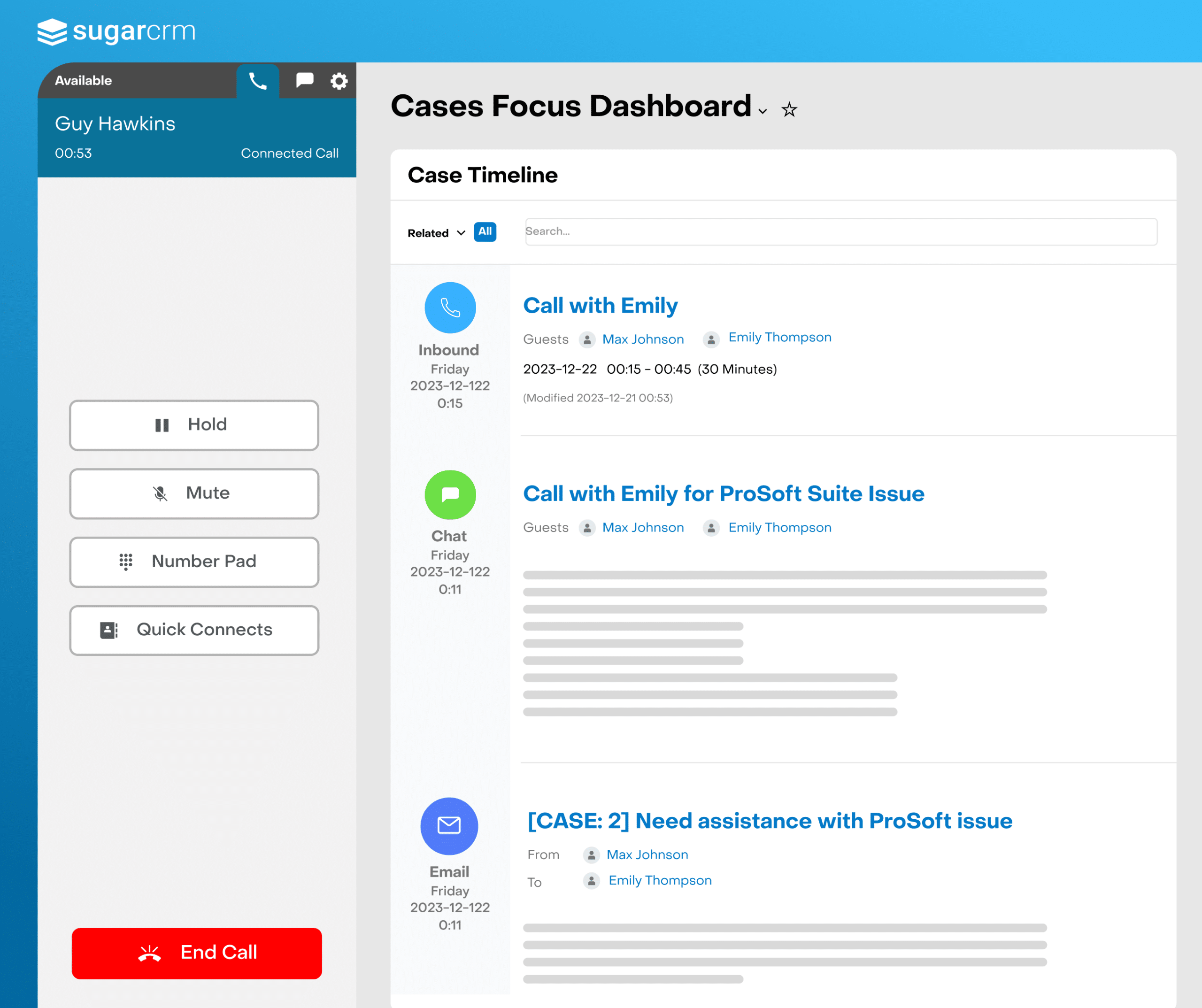CRM In The Manufacturing Sector: Uses & Benefits
What we'll Cover:
The manufacturing sector is not only riding but embracing this new age wave of digital transformation. The adoption of new channels and technologies, such as consumerization of B2B, reduction in layers of distribution, the Internet of Things (IoT), Analytics, and AI, are disrupting traditional business models and creating new opportunities for growth. Customer relationship management (CRM) solutions serve as a hub of this transformation and help organizations turn transformation investments into revenue.
In this article, we will explore a few of the top ways CRM is used in the manufacturing sector.
What is CRM in Manufacturing?
CRM (Customer Relationship Management) software helps to manage interactions with current and potential customers. Using a CRM for your manufacturing business can help to improve customer relationships, streamline operations, enhance sales and drive growth and profitability.
The Use of CRM in the Manufacturing Industry: Top 10 Reasons Why Manufacturers Need a CRM
1. Ensuring Customer Retention and Expansion by Delivering Seamless CX Across Marketing, Sales, and Service
Manufacturers are often mature businesses that generate the bulk of their revenue from repeat purchases from existing customers. When deploying CRM, manufacturing organizations need to take a balanced approach to deploy both tooling for existing account management as well as tools and processes for new customer acquisition. Deploying functionality that ensures existing customers are retained and continue to grow may be the greatest opportunity to generate additional revenue.
Marketing automation tools, like Sugar Market, can help manufacturers communicate with their customers in a more personalized and timely manner. By basing customer marketing campaign segmentation on data gathered and augmented by the sales team, manufacturers can react to opportunities that can fuel very relevant content and thus greater customer engagement.
In addition to managing existing customer relationships, CRM platforms can also streamline the sales process and shorten sales cycles. By deploying best practice sales playbooks, automated workflows, quote and proposal automation, sellers will have tools to execute new customer sales cycles quickly and accurately.
It is not only sellers and marketers that maintain relationships with customers. Manufacturing service agents often develop deep relationships and accumulate valuable information about customers. The organization benefits when sales share a CRM platform with service agents. Sellers can be alerted to increased support volumes or service requests that remain open for longer than they should.
2. Streamlining Operations—Even For Niche Sectors
Manufacturers often operate in niche markets, serving specific industries or customer segments. As a result, they require CRM systems that can be easily configured to meet the unique information and process needs of their target markets.
CRM solutions for the construction industry need to be configured to relate the sales process to construction projects, involving multiple contractors and suppliers. Manufacturers who have integrated their CRM with construction information services, such as Dodge Data or ConstructConnect, can automatically create opportunities from identified new construction projects and start the sales process early.
The manufacturing industry is under a big tent and there are many other specialized needs that require configuration flexibility from the CRM vendor. Sugar is among the most configurable platforms available, and we are proud of the specialized needs which we have serviced.
3. Recognizing the Value of Rapid Integration Models for User Adoption
Manufacturers typically have several systems, such as ERP, that provide valuable information to customer-facing teams. These systems should be integrated with CRM, but that usually comes with some cost of time and money.
Integration to email and calendar platforms such as Outlook and Gmail are critical, and you should expect your CRM to deliver this as a standard feature. Some vendors, such as SugarCRM, go deep and integrate on the server side, so you have always-on and close to real-time integration without any dependencies on the user’s desktop or mobile client.
Other than email and calendar, the most common integration is to ERP or accounting systems so that the CRM system can include customers’ orders and invoice history. All customer-facing teams need access to this information. Marketers need the information to be able to create campaigns based on purchase history, sellers need to understand purchase patterns and react to retention or expansion opportunities, and services need to know what products or services have been purchased.
By choosing a CRM vendor that provides these capabilities, manufacturers can add value to their users, de-risk the project, and increase the speed of adoption of the new system.
4. Conducting Product Sales Analyses for Improved Customer Retention and Revenue Generation
Don’t leave opportunities on the table. Sales leaders expect their customer account managers to know their customer’s behavior and preferences well, but sometimes sellers can use a helping hand. Product sales analysis, which involves the examination of product and sales data at the item level, can help manufacturers identify trends and opportunities that may otherwise go unnoticed.
By integrating item-level sales analysis capabilities into their CRM systems, manufacturers can more quickly gain a granular understanding of their product performance and customer preferences. This information can be used to help sellers quickly and systematically identify cross-sell and upsell opportunities and target marketing campaigns more effectively.
Sales item analysis can also help manufacturers spot situations where they are losing market share with specific customers, enabling them to address problems before they impact customer satisfaction or revenue generation.
5. Shortening the Sales Cycle With Quotation, Proposal, and Contract Management Tools
Manufacturers are often challenged by long and complex sales cycles. Deals involve multiple decision-makers, detailed technical investigations, lengthy negotiations, and multiple proposal revisions over a prolonged period, which increases costs and introduces opportunity risk.
Intelligent sales automation platforms, like Sugar Sell, offer quotation, proposal, and contract management tools that can help manufacturers streamline their sales processes and shorten sales cycles. These tools enable sellers to generate quotes quickly and accurately by using easy-to-navigate product and pricing catalog information. They also provide a centralized repository for storing and collaborating on proposals, ensuring that all stakeholders have access to the latest information.
Contract management tools within CRM systems can further expedite the sales process by automating the creation, negotiation, and approval of contracts. By reducing the time and effort required to finalize deals, manufacturers can increase their sales velocity and improve their bottom line.
6. Providing Intelligent Pipeline Analytics and Revenue Forecasting Capabilities
Understanding the sales pipeline dynamics is important to manage the sales force. CRM systems provide robust pipeline and revenue analytics tools that help sales leaders make accurate forecasts and understand what is working and what is not.
Sales leaders are accountable to production planners for the planning of expected orders. They need the ability to track win rates, sales cycle time, performance to quota, and a range of other pipeline metrics. Actionable understanding of sales pipelines is delivered to sellers in the form of lead and opportunity AI-based predictions. These pipeline and revenue analytics capabilities are critically important to manufacturers and should be native capabilities of your chosen CRM platform.
7. Improving Territory Account Coverage by Adding Mobile Geographic Mapping Tools
By incorporating geographic mapping tools into their CRM systems, manufacturers can gain a clearer understanding of their sales territories and identify any areas that may be underserved.
Geographic mapping tools can help users visualize their territories, enabling them to plan their routes more efficiently and allocate their time more effectively. By analyzing data on customer locations, sales activities, and opportunity generation, manufacturers can identify any gaps in their account coverage and make informed decisions about territory realignment or resource allocation.
Since your sales and service team may spend quite a bit of time in the field visiting accounts, ensure that your CRM incorporates the same mapping tools on the mobile CRM client. This can enable route optimization and improve efficiency when your team is faced with last-minute meeting reschedules where they need to locate alternate closest accounts to visit.
Mapping tools can also be used to analyze market trends and competitor activity, providing manufacturers with valuable insights into potential growth opportunities and threats.
8. Helping Sellers When Navigating Complex Customer Organizations
Manufacturers often sell their products to large enterprises, which can have complex organizational structures and decision-making processes. To succeed in these environments, sales teams need to quickly navigate customer locations and identify the key stakeholders who can influence purchasing decisions.
CRMs can help sales teams navigate complex customer organizations by providing them with organization charts, contact information, and relationship insights. By visualizing the hierarchy of their customer organizations, filtering for buying centers versus shipping locations, and tracking their interactions with key decision-makers, sales teams can more effectively target their efforts and build relationships with the right people in the right locations.
9. Enhancing Collaboration Across Teams
Collaboration between different teams—such as sales, marketing, and customer service—is essential for delivering a seamless customer experience. A robust CRM in the manufacturing sector can facilitate this collaboration by providing a centralized platform where all customer information is stored and accessible to relevant team members.CRMs allow shared access to customer data across all teams, streamlines communication and interactions between teams and enhances task management and tracking of projects.
10. Enhancing Customer Support and Service Management
Recommended copy: Excellent customer support is crucial for retaining customers and fostering loyalty. CRM systems can enhance customer support by providing tools to manage and resolve issues efficiently. CRMs can help with streamlining support ticketing, creating a knowledge base to provide customers with self-service options and monitoring & management of SLAs to ensure that customer issues are resolved promptly.
SugarCRM is Here to Help Manufacturers Capitalize on Digital Transformation
As the manufacturing sector continues to undergo digital transformation, Sugar and other CRM systems will continue to play an important role in driving revenue growth and customer retention. By adopting CRM solutions tailored to their specific needs, manufacturers can capitalize on the opportunities presented by emerging technologies and customer engagement models.
Manufacturing is one of SugarCRM’s largest industry vertical markets. We have a wealth of experience and success stories that we share with our customers. Speak with a representative today to learn more!
Or if you’re simply interested in learning more about the relationship between CRM and manufacturing, check out our guide, The CRM Buyer’s Guide for Manufacturing.
*This article was originally published on SugarClub


